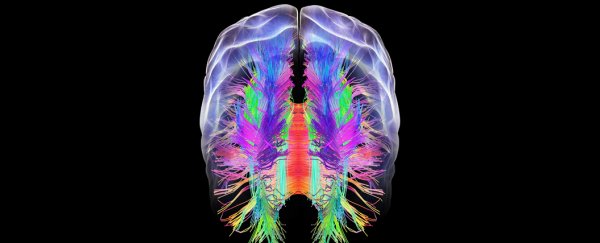A new study has shown that two licensed drugs can stop brain degeneration in mice with a condition similar to Alzheimer's disease, triggering new hope for a cure for the devastating disease.
Because both the drugs are already safely used in humans to treat other conditions, it means that they could rapidly be pushed through clinical trials and speed up the development of a potential cure.
"It's really exciting. They're licensed drugs," lead researcher Giovanna Mallucci, from the British Medical Research Council, told Hannah Devlin over at The Guardian. "This means you'd do a straightforward basic clinical trial on a small group of patients because these are not new compounds."
Mallucci presented her findings yesterday at the Alzheimer's Society annual researcher conference in the UK, but chose not to name the two drugs, to avoid patients trying to seek them out before they've been properly tested.
Her research builds on a study published by her team two years ago, which showed that they could completely stop brain tissue death with a compound that inhibits an enzyme called PERK in mice with prion disease, a neurodegenerative condition used to model Alzheimer's.
The research was called "the first proof in any living animal that you can delay neurodegeneration", and was heralded as a turning point in the fight against Alzheimer's disease. But the compound they'd discovered came with extreme side effects, including weight loss and diabetes, and wasn't suitable for human trials.
So Mallucci and her team have spent the past two years screening hundreds of different drugs to try to find one that has the same effect in the brain - and they believe they now have two prime candidates.
Her hypothesis is that the build of toxic plaques that are frequently blamed for causing Alzheimer's disease aren't actually the root cause of the condition, which is why previous drug trials have failed.
Instead, Mallucci's research suggests that the brain responds to the presence of these plaques by switching off new protein formation, via an increase in PERK production. This faulty signalling pathway prevents the brain from healing itself, according to Mallucci, leading to the neurodegenerative damage associated with Alzheimer's disease.
Studies have already confirmed that Alzheimer's patients have higher than usual levels of PERK in their brains, but the next step is for brain imaging studies to prove that this pathway really is leading to brain cell death and memory loss in humans.
"There is lots of evidence that points to the pathway being involved, but we need to do special scanning to show that what's happening to the mice is happening to humans," Mallucci told Devlin. "The big, burning question is what is the relevance for human disease."
If this is confirmed, it should only take a few years to get the new drug candidates into clinical trials with Alzheimer's patients, added Mallucci.
Carol Colton, a neurologist at Duke University in the US, said the results were exciting, but more research is needed to make sure that the inhibition of Perk doesn't have other negative side effects in the brain.
"Time will tell," she told Devlin over at The Guardian. "It would be a great thing if possible and new drugs are badly needed. Kudos to the authors and the Alzheimer's Society for moving this concept along."
